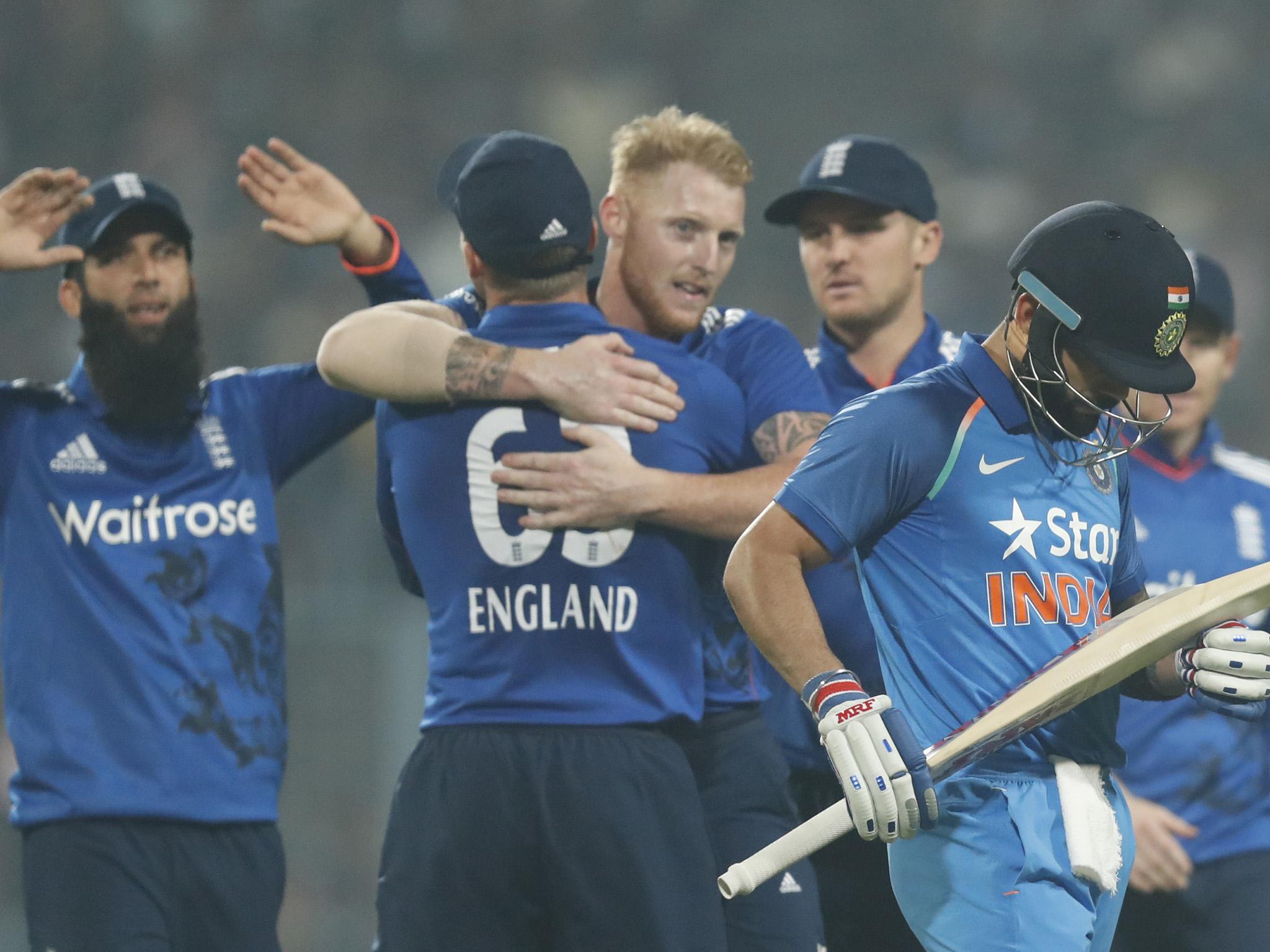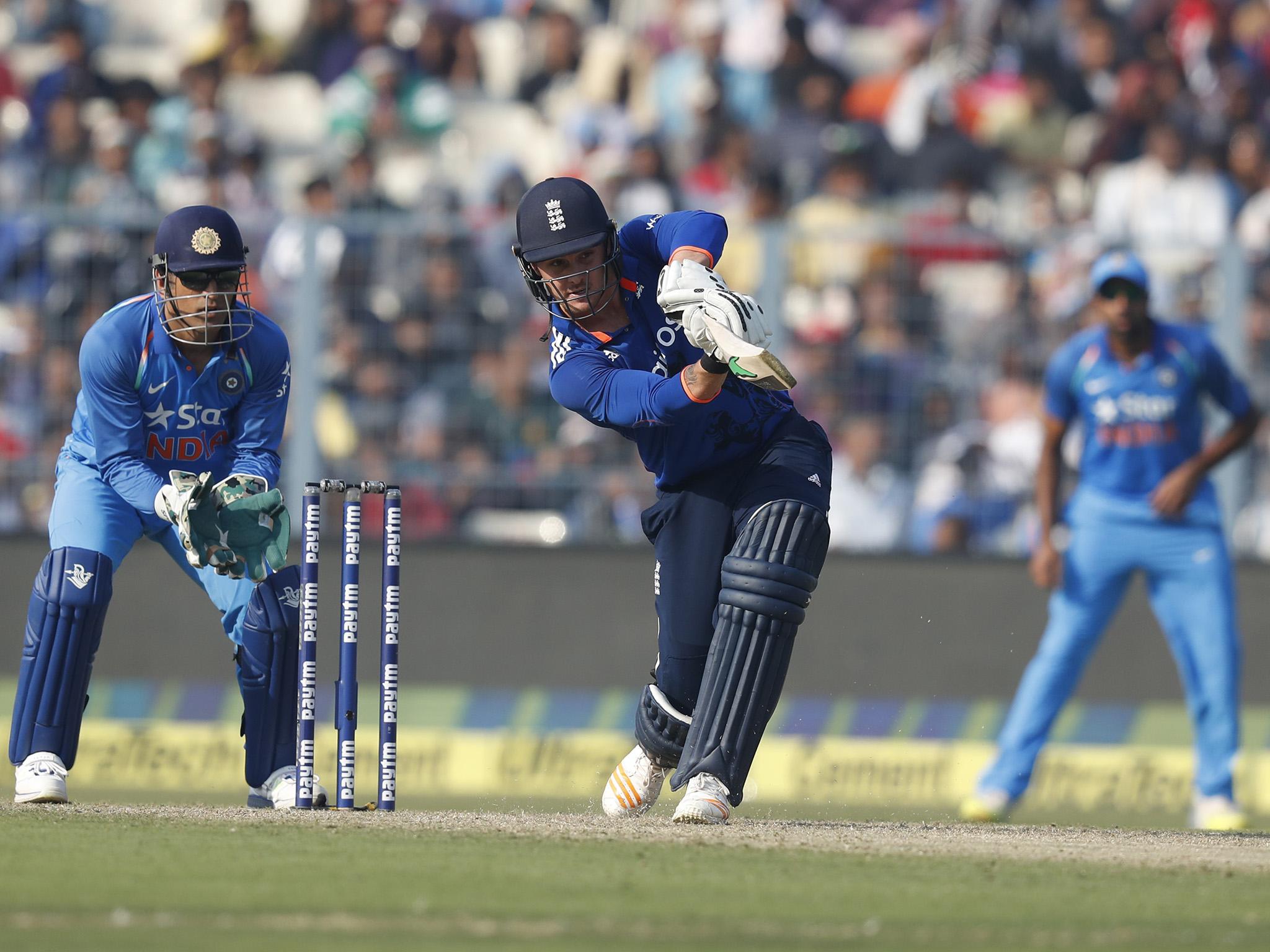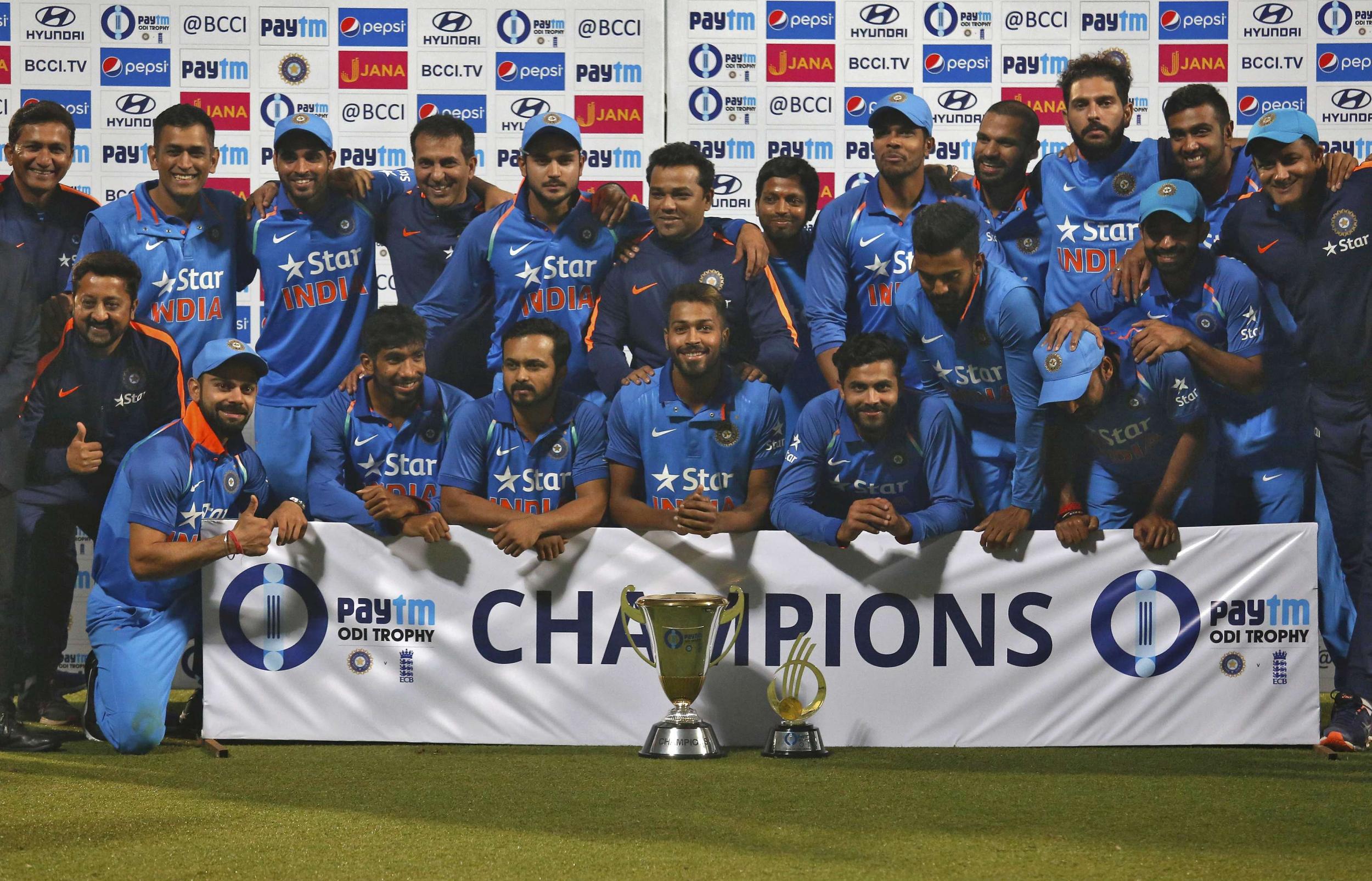Ben Stokes and Chris Woakes lead England to consolation win in India
England held on to win by five runs after setting India 322 to win in 50 overs

Your support helps us to tell the story
From reproductive rights to climate change to Big Tech, The Independent is on the ground when the story is developing. Whether it's investigating the financials of Elon Musk's pro-Trump PAC or producing our latest documentary, 'The A Word', which shines a light on the American women fighting for reproductive rights, we know how important it is to parse out the facts from the messaging.
At such a critical moment in US history, we need reporters on the ground. Your donation allows us to keep sending journalists to speak to both sides of the story.
The Independent is trusted by Americans across the entire political spectrum. And unlike many other quality news outlets, we choose not to lock Americans out of our reporting and analysis with paywalls. We believe quality journalism should be available to everyone, paid for by those who can afford it.
Your support makes all the difference.Two hundred and ninety-five days after failing to defend 19 in the final over of the World Twenty20 at Eden Gardens, the boisterous, heaving stadium was once again privy to a classic finale. Needing 16 to win from the final over, bowled not by Ben Stokes but Chris Woakes, England were hapless as Kedar Jadhav smote the first two deliveries over extra cover, for six and then four.
Yet Woakes then produced two dot balls, and had Jadhav caught slicing the penultimate delivery to leave India needing six to win off the final ball. It was immaculate, a full and wide delivery eliciting only a futile swing from Bhuvneshwar Kumar, India’s number ten. And so, after a winter’s toil, England final had a victory in India. Like a symphony with a screeching sound at the end, India’s imperious batting failed them at the last.
No one can have enjoyed it more than Stokes. He was not asked to bowl the final over this time, and it was only a bilateral one-day international in a series that England had already lost. But Stokes still produced a performance brimming with fizz, combining a brutish, bullying 59* with three wickets, including the great prize of Virat Kohli, to stymie India’s chase.
This was a particularly admirable victory for England, coming as it did not just against the backdrop of two agonising defeats, but the absence of Alex Hales and Joe Root, and the further handicap of David Willey going down with shoulder discomfort, and left unable to bowl more than two overs. England merited salvaging a game from the series, and so improving a little on their dismal recent record in ODI cricket in India: before this match, they had lost 21 matches, and won only three, in the country since 2002. In the process they halted Kohli’s undefeated streak as India’s captain after 19 games across all formats.
England were even able to overcome reprieving Kohli: on 35, he top edged Liam Plunkett to fine leg, but Jake Ball did not quite steady himself and shelled the chance. Sometimes the impact of elite batsmen is not merely in the runs they score, but how they seem to make their opponents shrink around them. When Plunkett, in an outstanding over, forced another misjudgement two balls later, an inside edge past the stumps for four, the outcome seemed grimly inevitable. But Stokes was steadfastly disbelieving of this apparent certainty, and nabbed Kohli with a ball that seamed away.
Yet still, even with Yuvraj Singh and MS Dhoni dismissed, India refused to be cowed. Jadhav and Hardik Panda combined for a sixth wicket stand of 104 in 13.5 overs, cheered on by 60,000 on a steamy night at one of the most intoxicating stadiums in the game. As Hardik Pandya hoicked several top edges for four, England threatened to lose their resolve, too often bowling short and wide and yielding 13 wides, though dew was pervasive. Stokes, though, located a full, straight bull to uproot Pandya’s middle stump and England’s tenacity ultimately made up for their flaws.
It was not the only contrast with the first two matches of the series. The match’s fourth ball, from Bhuvneshwar Kumar, flew alarmingly off a good length, and the prophesying of a wicket that would offer the bowlers pace and bounce that had been lacking in the first two ODIs proved correct.
While England had two changes in their top three, one continuity with the first two games was the batting of Jason Roy. Once again he made a sumptuous 50, scoring at over a-run-a-ball through little more than exquisitely timed orthodox shots, here supplementing some dreamy legside flicks with a balletic shimmy down the wicket to loft Ravindran Jadeja for a straight six to bring up his half-century. Once again, though, all this promise manifested itself not in a match-defining century but instead a delightful, but too fleeting, half-century. Only five times in Roy’s 34 ODI innings has he batted beyond 20 overs, yet he has still made 1329 at an average of 41.53, with a strike rate of 105.55 - no other batsman in ODI history has scored over 1000 runs while averaging more than 40 and scoring at over a-run-a-ball. An optimist would suggest those figures attest to Roy already being very good, and being capable of matching David Warner’s consistent ability to define matches with his blade.

Given how hard England’s top five is to break into, both Sam Billings and Jonny Bairstow might feel a little frustrated with their contributions. Billings was uncharacteristically jittery early on, and was aghast with himself when he reverse-swept straight to short fine leg - to him, the shot is as normal as playing a cover drive - for 35, though he is likely to open during the three ODIs in the Caribbean next month. Bairstow, batting in Root’s normal position at three, enjoyed fortune on 28, when he slashed straight to third man off a no-ball, but cut straight to backward point when he had hopes of converting his half-century into a ton.

That England’s top four all made between 35 and 65 was emblematic of a series in which, despite topping 1,000 runs, only Eoin Morgan made a century. Still, this failure appeared to matter not as Stokes, lashing the ball through the legside, and Woakes, less violent but scoring with even more alacrity, added a freewheeling 73 in 6.4 overs.
In the process they ensured that, despite a comparatively restrained approach earlier, England still sailed past 300 - the 9th time in their last 11 innings batting first they have done so, dating back to November 2015, during which time their average first innings score is 329. This startling improvement must now be married to a similar evolution in their bowling if England are to finally win their maiden 50-over global event at this summer’s Champions Trophy. Here, at least, was a start.
Join our commenting forum
Join thought-provoking conversations, follow other Independent readers and see their replies
Comments